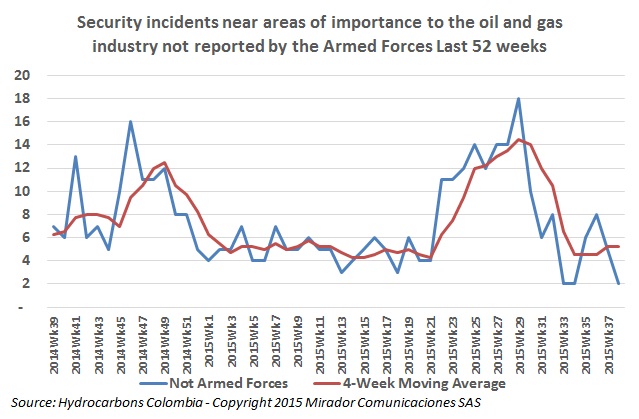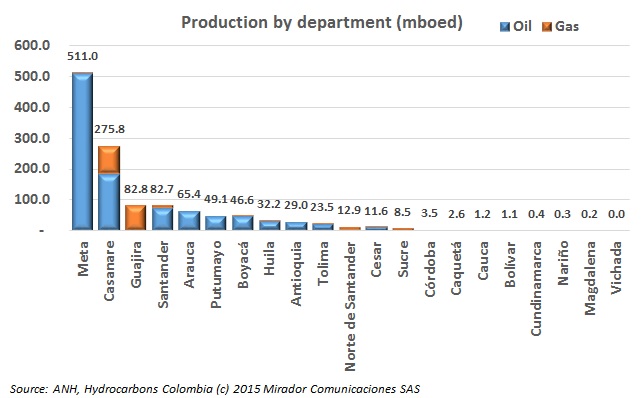President Juan Manuel Santos arrived in Cuba to reach a preliminary agreement with the Farc commander Timoleón Jiménez, alias ‘Timochenko’, in which both have promised to sign the final agreement and end the more than 50 year conflict in the next six months.

Ecopetrol (NYSE:EC) published a look a back on the 2,572 attacks on its oil infrastructure between 1986 and 2015 by the guerrilla, and gave a small glimpse into some of its impact.
Chinese-Indian oil firm Mansarovar has received new found attention after a small number of its USO affiliated workers announced a strike, which the company rejects as unnecessary. The conflict has caused the firm to talk to the local press, giving us a rare glimpse.
Rumors swirl that formal talks between the ELN guerrilla and the government are getting closer, but the group still lashed out this week and killed two soldiers. Ecuador says it can host these discussions.
Delegates from the Interior Ministry (MinInterior) left the comforts of Bogotá behind to meet with local authorities and members of the oil industry in Middle Magadalena as part of a plan to develop a strategy to confront social conflict, and also gave attention to contraband fuel on the border with Venezuela.

Total incidents were flat this week but Non-Armed-Forces (which we take as a proxy for guerrilla-initiated incidents) were down by 3 and Armed Forces incidents were up by 3. The ELN are the main source of problems but an incident in Cauca raises a red flag.
The USO has been pushing its agenda through affiliated workers at Mansarovar and Pacific E&P (TSX:PRE), with a list of claims of abuse in each case.

We frankly could not remember the last time we did this chart which summarizes the data by department (rather than basin or producer) and puts oil and gas production together (by converting gas to equivalent barrels). Useful for trivia contests on rainy Sunday afternoons with the kids or settling bets at the bar. But Ecopetrol (NYSE:EC) and the Colombian government should think about some other implications as well.
“The Bolivarian revolution is destroying itself,” said Colombian President Juan Manuel Santos, referencing Venezuela’s recent finger-pointing at Colombia as the origin for its political and economic problems, a conflict that has implications for Colombia’s peace process.
In Putumayo, community and indigenous groups are pushing to keep oil out, citing its environmental effects and position as a Farc target, and also are calling to curb coca eradication programs. Coca production has brought better returns for the community than legitimate crops.